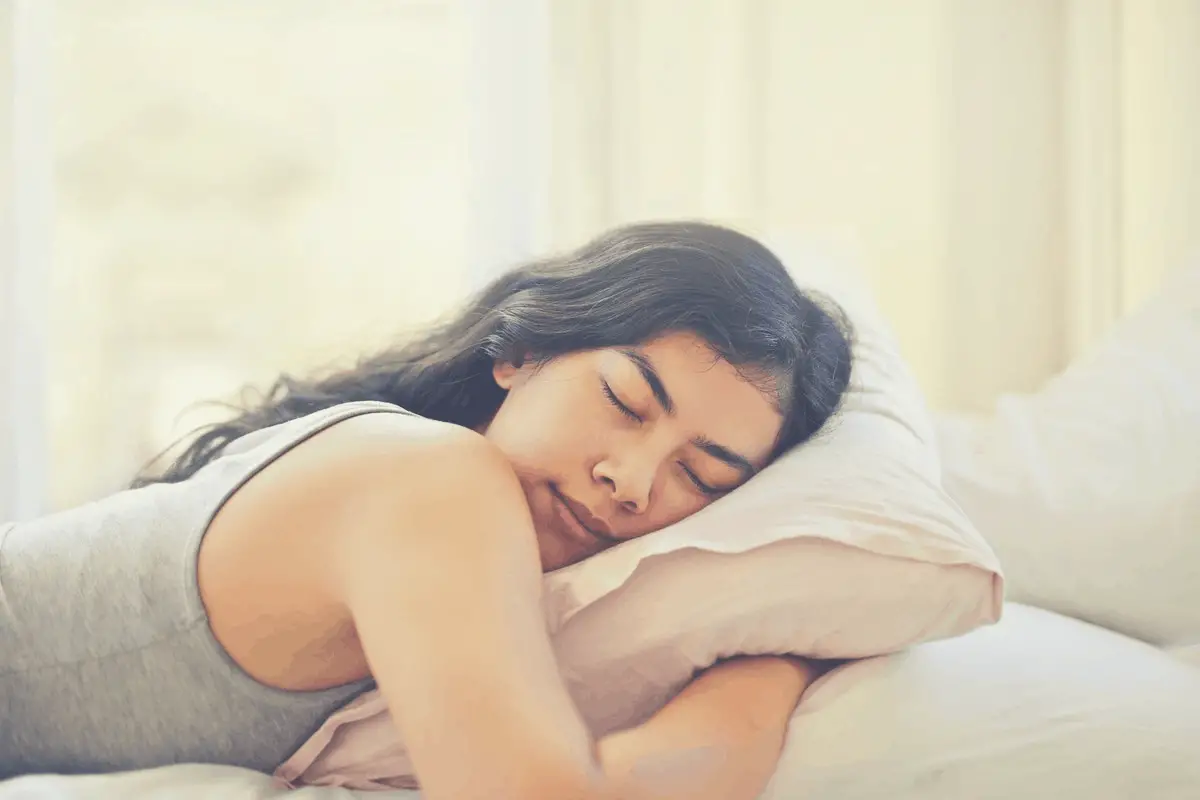Are you tired of staring at the ceiling for long periods before finally falling asleep even after hard stressful days? You need not be. There are lots of easy hacks that can transform the time it takes to hit the hay and improve your duration as long as you follow them.
These hacks can be generalized into a few categories such as:
- Creating an Enabling Environment
- Improving Your Comfort
- Following Mind Relaxation Techniques
- Making Pro-Sleep Choices During the Day
- Getting Rid of Distractions
- Using Sleep Aids
How do you fall Asleep faster?
The first section is about changing your bedroom.
1. Clean and De-clutter your bedroom
A dirty and cluttered room can be a recipe for disaster when you’re trying to fall asleep quickly. Such environments may leave anyone feeling anxious, overwhelmed, and stressed in several ways. Firstly, the presence of so much clutter can force the mind to work overtime by bombarding the sleeper’s senses with needless stimuli.
This may be a huge distraction by causing your focus to shift from the most important things in life. The result is a highly disturbed brain that is unable to relax regardless of how hard you try.
Besides, having a cluttered bedroom can fill your mind with enormous guilt and may cause embarrassment in the event of an unannounced visit by colleagues, friends, or relatives. (Psychology Today)
A room that is devoid of dirt and dust also improves your breathing efficiency and makes sleep more pleasant.
This is why cleaning and organizing the room is so important to help you drift off to sleep fast. It can be one of the best stress and anxiety relievers.
2. Change Your Bedroom Temperature
Falling asleep can be difficult when your bedroom temperature is too hot, resulting in various forms of discomfort such as hot flushes and night sweats. This can make even the deepest sleepers struggle to nod off.
This is why adjusting your bedroom temperature can be so crucial. It is no secret that the human body requires cool temperatures to kick start the shuteye process. Maintaining a cool sleeping environment ensures that the body can settle much quicker and go through all the 5 stages of sleep before morning comes.
As long as your bedroom temperature hovers around 65 degrees, a blissful night of rest should not be too far away. (Healthline)
Not only can the right bedroom temperatures make you doze off fast but it could also help you stay asleep throughout the night. Remember, an extremely cold room may also hinder sleep and force you to toss and turn from one side of the bed to the other. The keyword is a cool sleeping environment, not a cold one.
Have you read the article we wrote on Why Do Fans Help You Sleep? 5 Top Reasons Explained!? Click the link to discover the amazing benefits of switching the bedroom fan on.
3. Relocate To Another Room Or Sleep Upside Down
Sometimes, the body simply gets tired of spending the night in the same environment and desires some change. If you’ve been experiencing trouble hitting the hay, it may be time to relocate. This doesn’t necessarily mean moving into a new house. Sometimes, switching to the guest bedroom can help freshen things up a bit with your sleep.
A stay-cation can also be a great idea to sleep away from your daily routine and get a new perspective. This can help reduce anxiety levels significantly and boost your ability to sleep easier and quicker. (Medium)
By the time you return to the old bedroom, sleep should come easier and quicker. If you cannot afford a mini-break or have no spare bedroom to relocate to, how about sleeping upside down on the same bed?
This may offer benefits similar to changing the whole bedroom environment. The improvements to your mental well-being as a result of this simple change can be staggering for your sleep.
4. No Clocks in Sight
Clock stress can be a real inhibitor to falling asleep. Imagine checking the nightstand clock and realizing that it is past midnight when your regular sleeping time is 10:30 pm, for instance. This can cause a spike in anxiety levels as you begin to worry about how soon you can fall asleep and whether you’ll be able to wake up early in the morning.
Unfortunately, over-worrying about such things can keep the mind alert while ramping up stress levels. These stressful thoughts can also lead to the release of the stress hormone Cortisol which inevitably delays the release of melatonin – the active hormone that induces sleep.
This is why sleep experts recommend hiding the clock on nights when you’re desperate to fall asleep faster. Not knowing what time it is can save you a lot of stress and boost the brain’s release of melatonin for a quick sleep.
If you do not use a physical alarm clock, just hide your phone or any gadget that features an internal clock. (Ecosa)
5. Switch Off The Lights
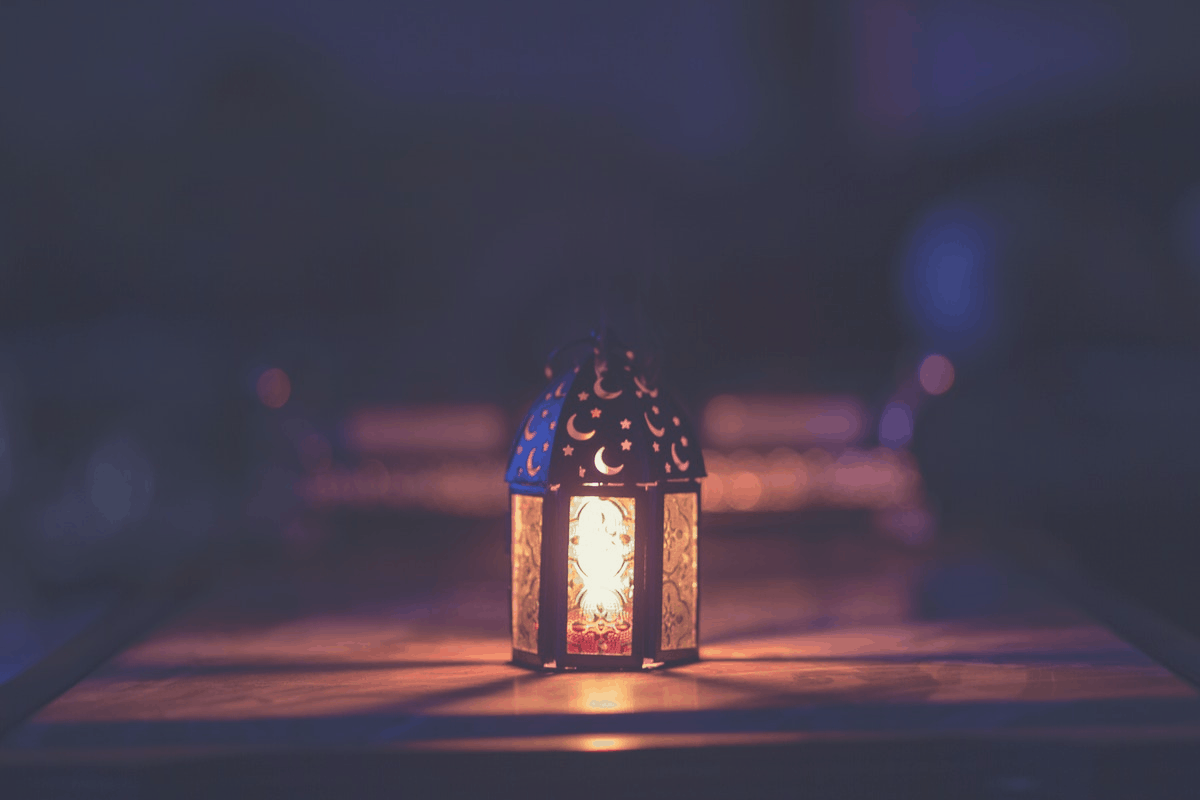
Dark bedrooms can be an easy hack that promotes quicker shuteye while keeping you in bed for much longer. The earliest generations of humans relied on the cycle of daylight and darkness to regulate their sleeping and wake-up times.
They went to bed when darkness fell and arose when the light came up in the morning. There was no form of artificial lights and this provided the basis for the internal human sleep clock.
The brain, therefore, associates natural light with wakefulness and reacts to it by releasing the stress hormone Cortisol. During darkness, Cortisol levels take a dip, and the brain increases the production of melatonin to relax the mind and launch sleep. (Swanwick Sleep)
Switching off artificial lights in the bedroom and ensuring total darkness sends the right signals to the brain that night has fallen and sleep is imminent. It typically responds by setting the body up for nighttime rest by lowering the overall temperature, decreasing the heart rate, and launching other processes that promote the ability to hit the hay.
Apart from switching off your lights, blackout curtains can also come in handy by blocking any form of natural light from entering the bedroom until your regular wake up time in the morning.
Still not convinced about ditching those bedroom lights overnight? Check out the article we wrote on the 10 Reasons Why Sleeping With The Lights On Is Bad For You.
6. Integrate Relaxing Scents
Filling up your bedroom with relaxing scents can also be a shortcut to falling asleep. Essential oils can provide calming effects on an individual’s physical and mental well-being. Once you achieve a good level of deep relaxation, falling asleep should come easy. (The Sleep Doctor)
Essential oils may also improve moods, relieve stress, and supercharge performance in various aspects of life. There are several options on the market when it comes to essential oils and a few of the most popular ones include:
- Vanilla
- Lavender
- Jasmine
- Rose & Geranium
- Citrus
- Sandalwood
Whatever your preferred option, these oils can be applied in a variety of ways to improve the time it takes to nod off as well as the quality and duration. Here are the top ways to infuse aromatherapy into your life:
- Apply directly to your body: This can be an easy way to enhance your sleep. Just make sure to dilute with a career oil such as olive oil or coconut oil before application to the skin. This can prevent irritations from the highly concentrated nature of essential oils.
- Add oil to your baths: A warm bath coupled with the shuteye-inducing benefits of aromatherapy can offer memorable nights. Pour a couple of drops into your bath and have a long steaming session an hour or so before bedtime. You’ll be amazed at how quickly the drift-off process can be.
- Use a Diffuser: Electronic diffusers release the aromas of essential oils into the circulating air in any environment. Each model comes with specific instructions so all you have to do is to follow them.
- Create homemade mist: Consumers can dilute a few drops of essential oils with water and pour the blend into an atomizer or spray bottle. You can spray the resultant mist in the bedroom or under your pillow to enhance breathing throughout the night. (The Sleep Doctor)
The Ultimate Aromatherapy Diffuser and Essential Oil Set from Amazon offered me the ultimate degree of relaxation to fall asleep. The sweet-scented aromas reduce anxiety and stimulate the brain to reduce sleep-boosting melatonin. It is highly recommended for everyone with sleep troubles.
7. Share Your Bed With A Pet
Are you a pet owner? Sleeping with your dog or cat may be one of the easiest ways to fall asleep quickly. Firstly, a dog breathes rhythmically and this can lull even the worst insomniacs to sleep when lying down next to one, according to Dr. Stanley Coren.
Sharing a bed with a pet can also surge the body’s production of the hormone known as Oxytocin, a feel-good hormone that relaxes the mind and promotes swift shuteye. (Psychology Today)
This is because lying down side by side with a beloved pet gives a sense of security that you’re in good hands. In the event of a home intrusion in the middle of the night, your pet will likely spot him or her from afar and react accordingly.
Additionally, pets also reduce stress and anxiety in humans, allowing the mind to calm down so you can sleep much quicker. (Help Guide)
While it was previously suspected that the presence of pets in the bedroom could be a disruptive influence on sleep, this has been proven not to be the case. (Science Direct)
Still on the fence about sharing a bed with your pooch? Click the link to read the article we wrote on Should Your Dog Sleep In Your Bed? The Ultimate Guide. We outline 15 top reasons for and 10 reasons against the popular practice.
The next section is about improving your comfort.
8. Sleep On The Left Side
Sleeping on the left side can be one of the healthiest ways to enjoy peaceful nights of rest. It may promote quick shuteye by enhancing the body’s digestion while reducing mental alertness at bedtime.
Remember, sleep can be difficult to achieve as long as the mind stays alert. Not only can this affect the time it takes to nod off but the duration and overall quality of nightly rest as well. Left-side sleeping may also prevent acid reflux especially among chronic GERD sufferers and late-night eaters.
Besides, lying down on the left side can also enhance the detoxification of the brain, removing dead cells, and recharging them by the time you wake up in the morning. Left side sleeping can also be great for pregnant women.
Have you read the article we wrote on the 7 Health Benefits of Sleeping On Your Left Side? Click the link to check it out why the left should be the favorite of every side sleeper.
9. Clean and Fresh Bedding
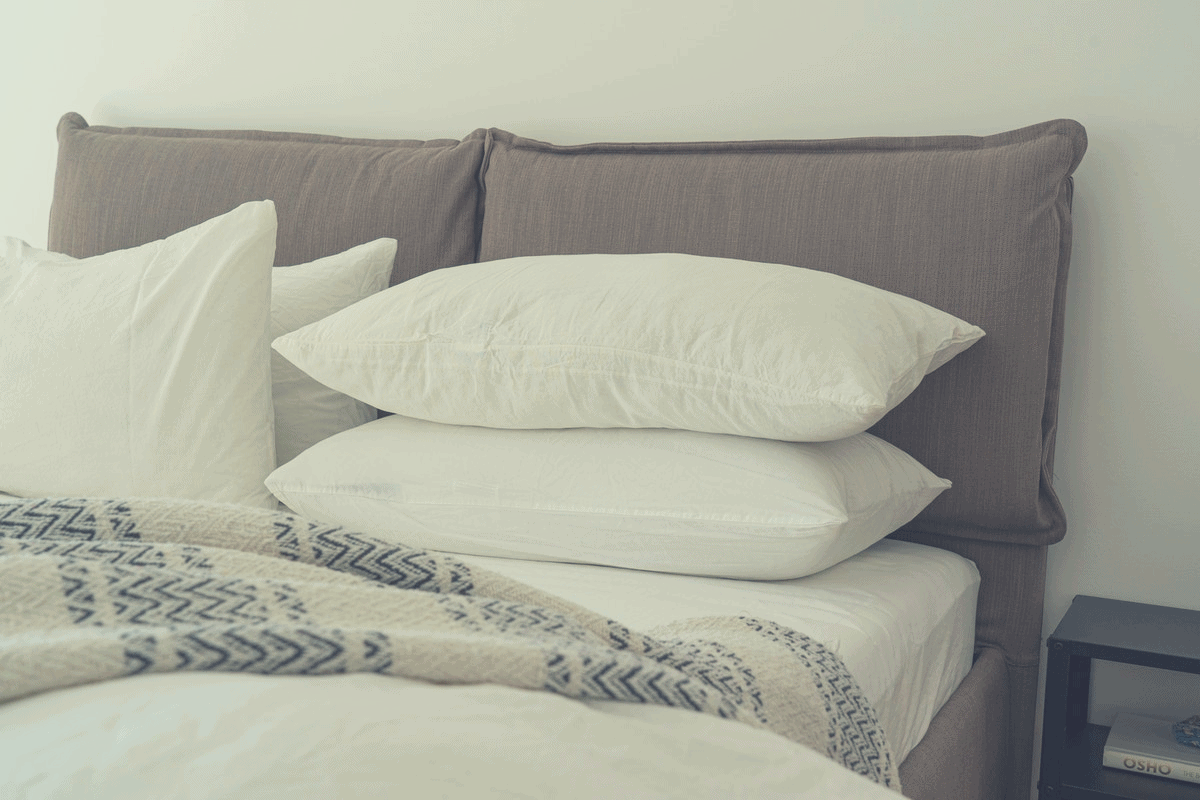
Bedtime comfort is one of the most sure-fire ways to arrive in Dreamland with little effort. Few things can be more comfortable than the feeling of fresh and crisp bedding when you jump into bed.
Don’t just take anyone’s word for it because there’s evidence to back up these claims. A study conducted by the National Sleep Foundation has revealed that 73% of sleepers report higher quality shuteye when they lie down on fresh bedsheets.
If you can afford it, changing your sheets every night can lead to impressive results for nighttime rest. However, if daily sheet changes seem far fetched, doing it every 3-4 days can be good for bedroom adventures in diverse ways.
Not sure what the differences between Duvets and Comforters are? Click to discover the article we wrote on Duvet vs Comforter: Which One is Best For You?
10. Get the Right Mattress
Nothing can be more frustrating than being stuck with a bad mattress. If you’ve been lying down on the same one for over 5 years and it is showing signs of wear and tear, it is time to stump up the cash for a brand new one.
Imagine trying to rest on a mattress that squeaks in reaction to each body movement or one that is sagging in the middle and several other places. The results can be disastrous.
When looking for a new mattress, make sure it comes with properties that can enhance your preferred sleeping position without blowing up your budget. If money is tight, you can always invest in a mattress topper to revamp sleeping comforts in the short-term.
The Ashley Furniture Signature Design Chime Express Memory Foam Mattress from Amazon has transformed my sleep since it arrived 6 months ago. It offers amazing body contouring, firm support, and pressure relief with an ultra-plush feeling. I couldn’t recommend it highly enough.
11. Get the Right Pillows
Just like bad mattresses inhibit sleep, bad pillows can also make your life more difficult at bedtime. The right pillows should provide ample support for the neck and enhance proper alignment with the rest of the body.
Unfortunately, many pillows flatten over time which can reduce the level of comfort they may offer. Going to bed on bad pillows can be difficult especially as a side sleeper, who may also need extra pillows for the knees.
The good news is that the majority of pillow models available for sale today come with adjustable heights and firmness levels. Thus, getting one of those can offer the freedom to make upward adjustments when they flatten beyond comfort.
I always look forward to retiring to bed on my Milemont Memory Foam Cervical Pillow from Amazon after a hard day of work. It has transformed the quality of my sleep by eliminating neck stiffness and shoulder pain since I ordered it 3 months ago. It has been money well spent.
12. Ditch the Clothes
Did you know that sleeping naked can put anyone on the path to La La Land? Well, a declined body temperature plays an important role in the circadian rhythm of human beings. As soon as the body temperature plummets, the brain takes it as a cue to launch sleep.
We all know that going to bed without clothes is one of the quickest ways to feel cool and the quick plummeting of body temperatures may help anyone fall asleep sooner. (Considerable)
Apart from speeding up how long it might take for you to nod off, jumping into bed with no clothes can also improve the quality of sleep. This can translate to ample nighttime rest which increases productivity and improves the overall quality of your life.
13. Get Some Fresh Air At Night
The feeling of a cool breeze on the skin can be heavenly especially during those hot summer nights. Not only does fresh air improve a sleeper’s comfort during sweaty nights but it may also speed up how long it takes to fall asleep.
The cool rush of air is renowned for its relaxing effects on the body, which is one of the key preconditions for falling sleep. According to Natalie Dautovich, Ph.D., an environmental expert at the National Sleep Foundation, “There are a lot of positive associations between fresh air and relaxation, and when we feel relaxed and comfortable in our environment, we’re more likely to feel sleepy.” (CNN)
One of the best ways to enjoy a cool pre-sleep breeze is to take a short walk in the neighborhood just before bedtime. By the time you arrive back home, your body temperature should be so cool that falling asleep takes minimal effort.
14. Sleep On the Floor
If you want to arrive in Dreamland almost immediately after jumping into bed, it is time to try sleeping on the floor.
Ditching beds can simplify your bedroom decor while making it more spacious which can be great for your mental well-being. With beds usually occupying a significant portion of bedroom space, the extra space can reduce anxiety and stress levels.
Besides, floors can be extremely cool during the summer and late spring nights when bedroom temperatures may get pretty hot. This can improve the body’s temperature regulation and promote rapid sleep, especially among hot sleepers.
Fortunately, sleeping on the floor overnight has not been linked with any negative side effects. Why do you think many cultures around the world such as the Japanese prefer lying down on floor mats instead of mattresses.
Does the thought of sleeping on the floor send shivers down your spine? Click the link to read the article we wrote on Sleeping On A Hard Surface: Everything You Need To Know
The next section is about following mind relaxation techniques.
15. Practice Mindful Meditation
Mindful meditation is a type of guided meditation that can ease even the most troubled minds into slumber. Many of us get caught up in different thoughts at bedtime when we often become idle.
Fortunately, meditation can be a great way of learning to let go of our deepest worries, and whatever else may be happening in our lives.
Once the mind achieves the necessary level of rest, falling asleep becomes much easier. Additionally, meditation can have a calming effect on the heart rate by firing up the parasympathetic nervous system and promoting slow breathing. (Harvard Health)
There are tons of resources on mindful meditation on the Web especially when it comes to paid programs. But you don’t have to shell out a dime because you can find various audios and videos on YouTube and other free streaming sites to guide through Mindful meditation.
I personally use the Body Quiet Meditation Cushion with Accupressure For Stress Relief from Amazon for Meditation and Yoga exercises. The seat is tall for excellent alignment of the hips and spine for correct posture. This means zero pressure on my back, knees, and ankles for superior comfort and longer, pain-free meditation and yoga sessions. I highly recommend it.
16. Practice Yoga
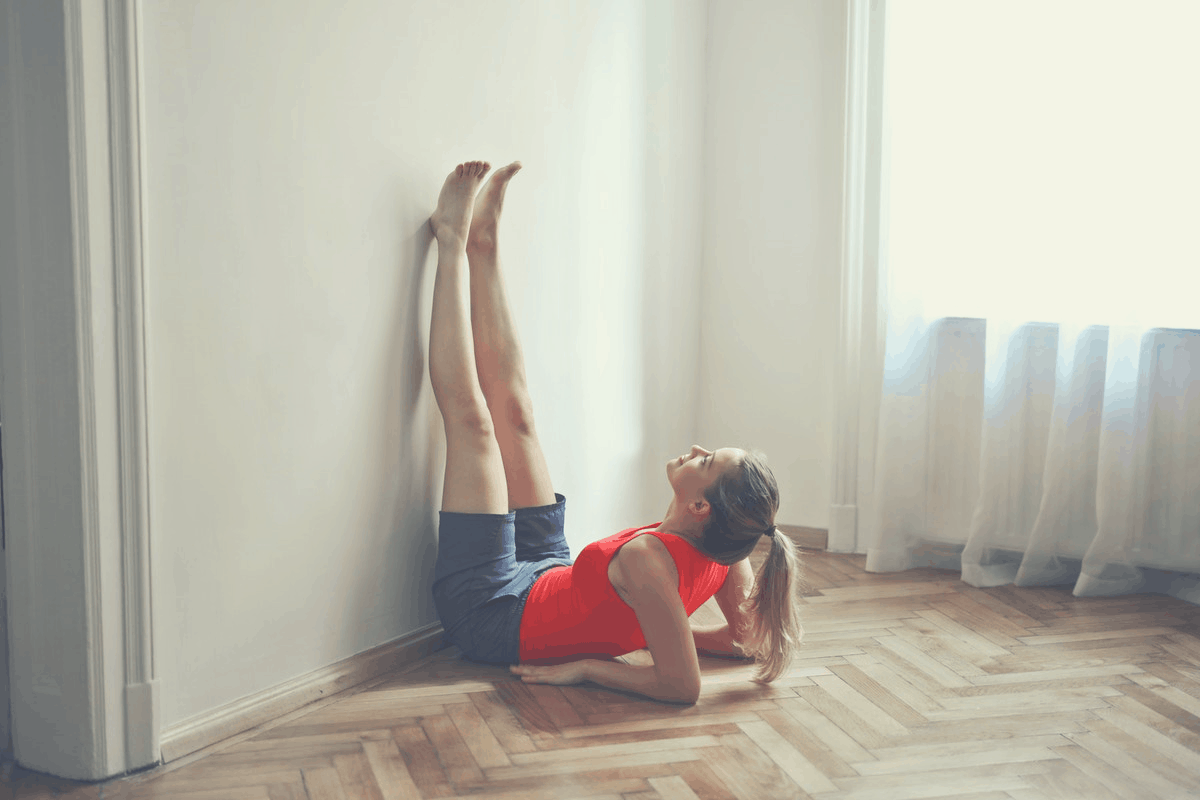
Stress is one of the main causes of sleep deprivation. If you’re struggling to hit the hay lately, yoga poses can be an easy way to transform sleep fortunes. Yoga may improve sleep by lowering anxiety and stress levels.
This often relieves tension in the body and produces a calming effect on the mind. Many yoga poses can also relieve the signs of restlessness and insomnia. Unfortunately, the number of yoga poses available can be overwhelming. But if you’re committed to falling asleep faster, the poses below may be game-changers for your sleep:
- Standing Forward Bend (Uttanasana): This pose involves standing with the feet widened approximately 6 feet away from each other. Allow the torso to fold to the ground while letting the arms bend and grabbing the opposite hand to the opposite elbow.
- Legs Up the Wall (Viparita Karani): This pose simply involves lying down and raising your legs on the wall for 5 minutes while your eyes are closed. It can be a great way to relax the mind and banish stress.
- Corpse Pose (Savasana): This pose is one of the easiest and simply involves lying down flat on your back like the dead. Try to cease focus on your surroundings and instead pay attention to your breathing movements.
- Left Nostril Breathing (Surya Bedhana): Just sit up with your legs crossed, cover the nostrils with the thumb while the other fingers are sticking out and deeply inhale about 10 times with your left nostril.
- Supine Spinal Twist (Supta Matsyendrasana): This is perfect for quick sleep after jumping into bed. It involves lying down on your back, raising the right knee towards the chest, and over to the left side. Draw out the right arm and look hard in the right direction while drawing deep breaths repeatedly. Switch to the other side after some time. (Huff Post)
The BalanceFrom GoYoga All-Purpose 1/2 Inch Extra Thick Anti-Tear Yoga Mat from Amazon is my go-to mat for doing yoga at home and the office. The 71-inch length and 24-inch width make it comfortable for people of all shapes and sizes. With 5-star reviews from over 21,000 buyers (and counting) on Amazon alone, you cannot afford to miss out on it.
17. Practice Deep Breathing Techniques
Deep breathing exercises are renowned for their mind-relaxation effects, especially at bedtime. If you’re overly stressed or have a ton of things on the mind, these techniques can make you forget those troubles.
Once the brain relaxes, it usually responds by releasing important hormones that can quickly put you to bed. The most powerful deep breathing techniques touted by experts and sleep enthusiasts include:
- 4-7-8 Breathing Method
- Three-Part Breathing Exercise
- Bhramari Pranayama
- Diaphragmatic Breathing
- Buteyko Breathing Method
We recommend trying each of the methods noted above and measure the individual response to your body’s stress needs. This can help you narrow down to 1 or 2 that can be mastered over time and called upon whenever you experience sleep troubles.
Whichever deep breathing technique you settle on, make sure to always close the eyes, and focus on your breaths while reminding yourself of the body’s healing power. (Healthline)
18. Listen to White Noise
Whisper-quiet surroundings are typically the most ideal for maximum sleep quality. However, many of us share homes and apartments with family members and may also have neighbors who make loud noises at night.
So the idea of deaf silence at bedtime is usually not realistic for a lot of people. This is where white noise comes into the picture.
The National Sleep Foundation defines white noise as the relatively pleasant noise that reduces the difference between background sounds and “peak” sounds like a slammed car door. This type of noise can create a better sleep ambiance by drowning out other unpleasant noises in your home or surroundings.
A few popular examples of white noise at home include:
- The sounds emanating from air conditioners, air purifiers, and fans
- The sound of heavy rainfall at night
- The sound of loud ocean breezes at night
- The sound of thunder and lightning when the weather gets stormy
- The sound of birds singing at night
I switch on The Adaptive Sound Technologies Lectrofan High Fidelity White Noise Machine from Amazon every time I experience sleep troubles. It offers 20 unique white noise sounds that calm my mind and helps me fall asleep quickly.
19. Listen to Soothing Music
If you’re having trouble getting to Dreamland, why not just put on some soothing music?
Music can be extremely calming for troubled minds, especially tracks that play at a low tempo. This is because soothing tunes can directly impact on the parasympathetic nervous system, calming down the body, and promoting sleep.
Music can also be enjoyable which means it can lighten moods and help you forget your troubles.
Senior citizens suffering chronic insomnia report significant improvements in the amount of time it takes to fall asleep after listening to music. Studies have shown that even 45 minutes of music among older adults produce rapid sleeping.
Additionally, music offers potent mind-relaxation effects on the body by slowing down the heart rate, lowering blood pressure, and even calming the nerves.
Remember, the best music for inducing sleep ranges between 60-80 beats per minute, typically found in folk music and jazz. (National Sleep Foundation)
I personally use the Cowin E8 Active Noise-Canceling Headphones from Amazon to listen to soothing music in bed. It features amazing technology that drowns out background noises so I can focus on listening to relaxing pleasant sounds for satisfying sleep.
20. Sleep Podcasts
Have you only began having sleep troubles? Or Insomnia has always played some part in your life? Either way, the definition of insanity is doing the same thing over again and expecting different results.
Thus, it may be time to try something different – albeit dramatic to help you fall asleep and they don’t come better than listening to boring podcasts.
These podcasts usually involve hosts choosing and discussing boring topics for long periods and surprisingly, many people report amazing results from these podcasts. The topics can be so boring that you slip into Dreamland without even noticing it.
Here are a few of the most popular sleep podcasts to sign up for:
- Sleep With Me
- ASMR HQ
- The New Yorker
- You Must Remember This
- Game of Drones
- Story Not Story
- Miette’s Bedtime Story
- In Our Time
- The Great Detectives of Old Time Radio
- The Daily Meditation Podcast (Sheerluxe)
21. Reading Boring Material
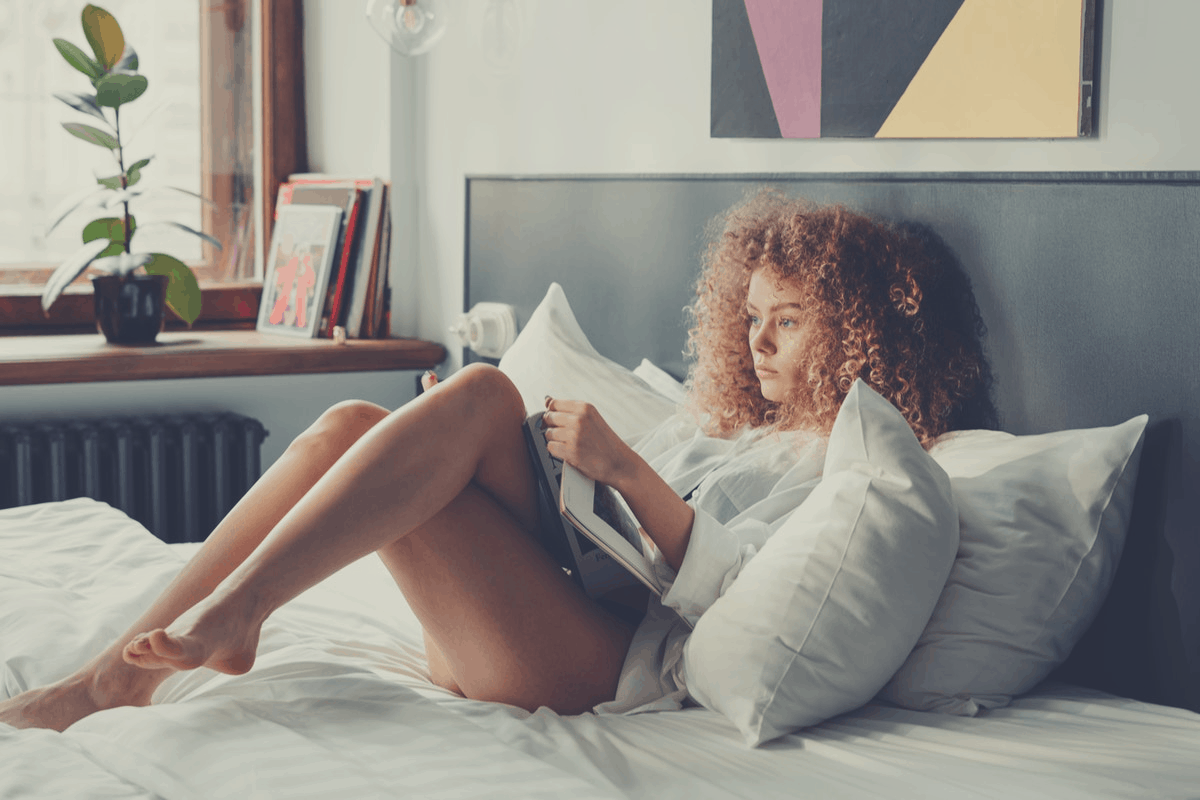
Just as it works for podcasts, boring books can also be effective for falling asleep. You probably have personal experience when it comes to nodding off while reading boring material.
And the trick still works as long as you choose something boring enough. J. Todd Arnedt, director of Behavioral Sleep Medicine Program at the University of Michigan Medical School says “Pick something boring” because it sets up “the perfect conditions for sleep to manifest”.
If you’re struggling to choose what to read, textbooks in different areas of study work well in most cases.
Unless you’re a science whizz kid, areas such as Physics and Chemistry can be boring enough in many scenarios.
The next section is about how to make pro-sleep choices during the day.
22. Get Early Morning Sunlight
Getting a dose of the early morning sunlight can boost your chances of falling asleep much quicker at night. As stated earlier, the circadian rhythms in humans rely on light and darkness to determine the differences between daytime and nighttime.
During the daytime, the body is set up to stay awake by the brain releasing the stress hormone cortisol into the bloodstream. At nighttime, melatonin replaces cortisol which leads to the introduction of sleep.
Exposure to the early morning sun can reinforce the circadian rhythm by making it easy for those critical pro-sleep processes to run smoothly at night. This can prevent or at least reduce the instances of tossing and turning when you’re desperate to sleep.
Besides, the bright morning sunlight also increases the production of serotonin, another important hormone that regulates sleep. (The Sleep Judge)
23. Be Physically Active
An active lifestyle is important if you want memorable nights. Even the mildest forms of exercise may increase the amount of slow-wave sleep i.e. the deeply satisfying shuteye that allows the mind and body to recharge.
Exercise can also eliminate bad moods and relieve the pressure on the mind which leads to a natural transitioning to sleep.
The amount of exercise needed for restful nights can be as little as 30 minutes of undertaking aerobic activity such as running. Powerlifting and yoga may also increase your heart rate which stimulates the biological processes that promote restful nights in bed. (Johns Hopkins Medicine)
In many instances, taking a short walk after dinner may do the trick when bedtime arrives.
24. Eat Properly

Did you know that changing your diet can make it easier to sleep at night? Well, if you’ve been counting sheep at bedtime, the type of food you’ve been consuming could be the underlying reason.
One of the best diets for quick slumber is the Mediterranean Diet which focuses on vegetables, fruits, nuts, and whole grains. This largely plant-based diet that incorporates limited quantities of seafood, poultry, and eggs can produce positive results for your sleep.
A 2018 study revealed that following this diet led to an increase in sleep quality. Even if you’re unable to follow the Mediterranean diet thoroughly due to the devotion to another diet or other reasons, incorporating good quantities of these foods can boost the time it takes to fall asleep nightly:
- Walnuts
- Tart Cherries
- White Rice
- Salmon
- Turkey
- Eggs
- Collard Greens
- Warm Milk
- Cashews
- Carrots
- Sweet Potatoes
- Chamomile Tea
- Tuna
- Kiwis
- Cottage Cheese (Men’s Health)
Do you frequently eat full meals late at night? Click the link to discover the article we wrote on Sleep When Full: 5 Reasons To Avoid It. We outline the reasons why light meals can be more beneficial at bedtime as well as how many hours you should wait to sleep after eating.
25. Ditch the Coffee
It is no secret that coffee can be one of the greatest enemies of falling and staying asleep at night. If you have a severe caffeine habit, no wonder tossing and turning in bed has become a staple in your life.
Whether you prefer Black coffee or opt for sweetened options from Starbucks and other coffee chains, the high caffeine content means you’ll likely not get much sleep. Caffeine inhibits adenosine, a neurotransmitter that relays information to the brain to launch the sleep process. This keeps your brain hyper-alert and eliminates any chance of drifting off. (Medical News Today)
The result is a frustrating night where you struggle to close the eyes regardless of how hard you try.
If you must drink coffee, it should be no more than 4 cups per day and make sure not to drink it at least 6 hours to bedtime. This is because the effects of caffeine on the body take about 6 hours to wear off.
In addition to coffee, these snacks may contain high caffeine quantities and should be avoided:
- Chocolate bars
- Soda
- Tea
- Energy Drinks
- Hot Cocoa
- Breakfast Cereals
- Ice Cream or Frozen Yogurt (National Sleep Foundation)
Struggling to nod off after drinking cup after cup of coffee? Check out the comprehensive guide we wrote on How To Sleep After Drinking Too Much Coffee. We share some hidden secrets about sleeping tight after excessive caffeine consumption.
26. No Nightcaps
While alcohol can help kick start sleep much quicker in the interim, it is only a matter of time before it backfires. The effects of alcohol can boost the production of adenosine, a hormone that gives the brain the green light to set up the processes that put you to bed.
However, you’re more likely to wake up at some point in the night when the alcohol’s effects wear off, leading to difficulties in sleep resumption. (The National Sleep Foundation)
Relying on alcohol to reach Dreamland can also mess up the body’s ability to drift off naturally. Thus, this can eventually lead to an alcohol dependence every time you retire to bed.
Drinking alcohol can also cause dehydration by forcing the sleeper to wake up several times to visit the bathroom and refill his bladder by drinking more water.
27. Create a Sleep Schedule
Going to bed and waking up at the same time every day can be great for not only the time it takes to doze off but also the overall quality of your sleep.
A regular sleep schedule may be far more beneficial for the body than spending the same amount of time sleeping in bits and pieces. (Help Guide)
The trick is to settle on a bedtime when your body is usually tired enough not to struggle before zooming into La La Land.
A consistent sleep schedule also keeps your internal sleep clock mechanism on track. This means a low risk of being forced to count sheep when it is time to retire at night.
The next section is about how you should focus on sleeping.
28. Switch off the Smartphones

Many of us spend an hour or so on one gadget or the other before bedtime. While the majority of folks regard that as a good way to unwind, it can be detrimental to your sleep. Smartphones, in particular, are popular among teens and young adults.
However, these gadgets emit blue lights the brain may confusingly translate as daylight, delaying how long it takes before melatonin is released to setup sleep.
Additionally, watching those sports highlights on YouTube, streaming the latest music, and checking out your friend’s Instagram posts can keep the mind alert which delays sleep in the process.
Besides, staying physiologically alert way past your bedtime can also negatively affect the amount of REM sleep the body receives.
29. Turn off the TV
Just like smartphones, TVs can also have a distractive effect on your sleep. The light emitted by TVs is interpreted similarly to smartphones and other gadgets. This can delay the time it takes for melatonin to arrive, resulting in tossing and turning in bed.
The sounds from TVs at nighttime can also disturb sleep, especially among light sleepers and those who’re easily woken by the slightest bit of noise.
Switching off the TV can remove distractions that take away your focus. It also relaxes the mind and reduces the amount of brain activity at bedtime. (Self)
30. Shut Your Windows
Excessive cold can prevent you from falling asleep. If you live in a cold region, shutting your windows may be one of the best ways to get a good night of rest. This can prevent the cold breeze outdoors from entering your room and freezing you to death.
The only way out may be turning up the thermostat which can result in a spike in your heating bills.
Shutting your window can also be a great idea if you live in the city center or close to major highways. The sounds from vehicle horns and neighbors can wake up even the deepest sleepers. (Sleep Cavern)
Conclusion
These are the best 30 tips for falling asleep faster whether you’re a chronic insomniac or going through a spell of recent sleeping difficulties. All of these techniques can influence the brain to release sleep hormones at the right time for a quick and peaceful drift-off.
As long as you follow a few of them, those restless nights of tossing and turning from one side to the other can be a thing of the past.
